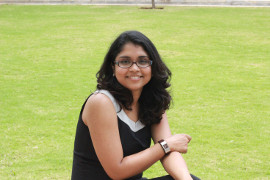Dr. Hiyaa Ghosh
Our goal is to uncover fundamental mechanisms of adaptability and resilience in the adult brain. For this, we study structural and functional programs that allow compensatory changes in neurons and glial cells. Using modalities of physiological disturbance, we have demonstrated that the ‘intended/steady-state’ form and function of mature cells in the adult brain, including mature neurons, is actively maintained through proactive inhibition of alternative physical and functional possibilities. We have established mouse models of physiological perturbations that cause acute cognitive deficit followed by cognitive rescue over time. Using these models, we examine how the retained structural and functional flexibility in neurons and glia potentially contribute to compensatory changes to reinstate normal functioning of the brain. We also study heterogeneity within neuronal and glial cells in the context of adaptive advantage for homeostasis in the adult brain. With these efforts we seek to unravel genetic regulations underlying form and function plasticity in the adult brain cells that contribute to maintenance of brain functions, and deregulations thereof, that may underlie neuro-pathologies. (for more details see “Research”).
As a team, we look forward to the challenges and excitement of decoding some of the intriguing biology of the adult brain using state-of-the-art approaches for investigating our questions. Currently, we employ mouse genetics, chemogenetics, behavioral, morphometric and electrophysiological studies alongside microscopy, flow-cytometry, high-throughput single cell transcriptomic studies, and conventional molecular biology and cell-culture studies. However, as we go about our investigations, we treat no technique as off-limits.
If you are interested in our research and have a passion for problem solving, you can write with a detailed CV, and a brief note on your research interest to Hiyaa (see contact information). Ph.D students are encouraged to apply through the Ph.D. program of NCBS. The lab will also consider applications from Ph.D candidates and Junior Research Fellows (JRF) who have their own funding/fellowship (UGC/CSIR/IDBT/CMR/equivalent). Postdoctoral candidates should apply with a write up explaning their specific interest in our work and a recent CV. The lab does NOT accept short-term trainees/interns, however, we do consider interns for 12months or longer projects.



